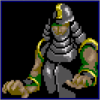I mean, I guess do tones, because it won’t take you too long to get the idea. After that, tones will be part of vocab, so you’ll have to work on it continually.
Yes, focus on tones (and pronunciation in general) so you don’t have to go back and relearn all your vocab to pronounce it properly. If you don’t focus on tones, you’ll sound like my third-year classmates talking about how chest hairs love to eat bamboo.
What’s the Pinyin and characters for this and for what they’re trying to say?
熊猫 xiong2mao1 vs 胸毛 xiong1mao2
Learn tones initially. Knowing the basics of tones will pay dividends
What’s some good sources for differentiating and practicing them?
Tones and minimal pairs, then vocab.
What’s your plan for learning vocab when you get to it?
I don’t know. That’s why I asked…
It took me a while to find the links, but I hope these help:
- Learning languages, step-by-step
- Starting with Chinese, some resources
These posts/comments may also be of use:
- Listening-Reading (LR) method (using Spanish as an example, but it works with any language)
- Summary of the LR method
- Some tips for making your own Anki decks (spaced repetition cards) if you fancy that
- Some tips on playing games and using word lists to learn vocabulary
Let me know if you have questions.
I’ll inquire upon ye if it’s helpful…




